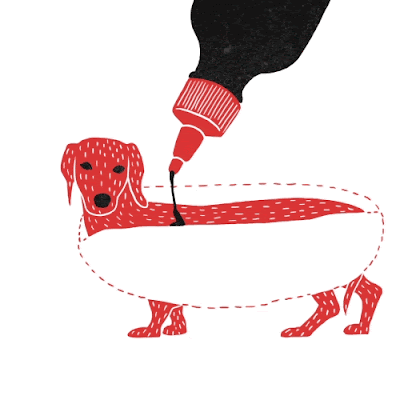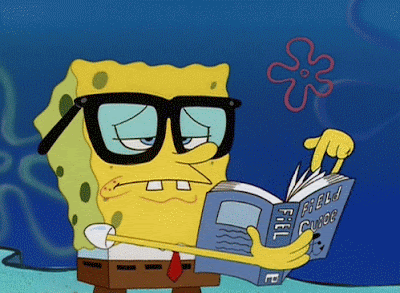NPR - Tiger Mom 虎媽的育兒術
下載聲音檔請點我
Tiger Mothers: Raising Children The Chinese Way
Amy Chua is a law professor at Yale who's written big think books on free market democracy and the fall of empires. Her new book, however, is a memoir called "Battle Hymn of the Tiger Mother," which is about raising her two American daughters in what she describes as the Chinese way.
Book critic書評 Maureen Corrigan says that Chua's approach to parenting is controversial, even scary. But there is no question that her memoir is destined to be注定要成為 one of the most talked about books of the season.
MAUREEN CORRIGAN: Amy Chua may well be nuts瘋子. What kind of a mother hauls her then-seven-year-old daughter's dollhouse out to the car and tells the kid that the dollhouse is going to be donated to the Salvation Army基督教救世軍慈善組織 piece by piece if the daughter doesn't master a difficult piano composition by the next day? What kind of a mother informs her daughter that she's garbage? And what kind of a mother believes, as Chua tells readers she does, that an A- is a bad grade, the only activities your children should be permitted to do are those in which they can eventually win a medal得獎牌, and that medal must be gold?
What kind of a mother? Why, a mother who's raising her kids the Chinese, rather than the Western, way. In her new memoir回憶錄, "Battle Hymn of the Tiger Mother," Chua recounts her adventures in Chinese parenting, and nuts though she may be, she's also mesmerizing. Chua's voice is that of a jovial爽朗, erudite博學多聞 serial killer - think Hannibal Lecter - who's explaining how he's going to fillet一塊一塊切割his next victim as though it's the most self-evidently normal behavior.
That's the other gripping aspect of "Battle Hymn of the Tiger Mother." There's method to Chua's madness - enough method to stir up self-doubt in readers who subscribe to more nurturing充滿愛與關懷的 parenting styles. Trust me, "Battle Hymn of the Tiger Mother" is going to be a book club and parenting blog phenomenon現象; there will be fevered debate熱烈的討論 over Chua's tough love嚴厲的管教(打罵懲罰為主的) strategies, which include ironclad bans嚴格的鐵律 on such Western indulgences享受(此指小孩子最喜歡的玩樂) as sleepovers, play dates, and any extracurricular activities except practicing musical instruments, which must be the violin or piano.
When Chua married her husband, fellow Yale law professor and novelist Jed Rubenfeld, they agreed that their children would be raised Jewish and reared the Chinese way, in which punishingly hard work - enforced by parents - yields excellence; excellence, in turn, yields satisfaction in what Chua calls a virtuous circle良性循環. The success of this strategy is hard to dispute.沒甚麼好爭議的(因為很成功) Older daughter Sophia is a piano prodigy天才 who played Carnegie Hall美國知名的卡內基演奏廳 when she was 14 or so. The second, more rebellious daughter, Lulu, is a gifted violinist. Chua rode the girls hard嚴厲鞭策, making sure they practiced at least three hours a day, even on vacations, when she would call ahead to arrange access to pianos for Sophia in hotel lobby bars and basement storage rooms. Chua also rarely refrained from讓自己不去做某事 criticizing her daughters, and in one of the many provocative passages that fill her book, she explains: Chinese parents can do things that would seem unimaginable - even legally actionable依法可以被起訴的 - to Westerners. Chinese mothers can say to their daughters, Hey fatty, lose some weight. By contrast, Western parents have to tiptoe around the issue, talking in terms of health and never ever mentioning the f-word, and their kids still end up in therapy最後去接受心理治療 for eating disorders飲食不正常(常見的有暴食症Bulimia 與厭食症 anorexia) and negative self-image.負面的自我形象 Western parents are concerned about their children's psyches心靈感受. Chinese parents aren't. They assume strength, not fragility脆弱, and as a result they behave very differently.
I was on my living room couch, reading the end of Chua's memoir, when my 12-year-old daughter came downstairs and announced that she had done enough reading for one day and that since she had also practiced flute for 15 minutes, she was going to kick back and watch TV - in this case, a made-for-TV Disney movie. Chua tartly 尖酸地sums up the stereotypically非常制式的/典型的 Western Disney plot this way: In Disney movies, she says, the studious kid always has to have a breakdown崩潰 and realize that life is not all about following rules and winning prizes, and then take off her clothes and run into the ocean or something like that. But that's just Disney's way of appealing吸引人的 to all the people who never win any prizes. Winning prizes gives you opportunities, and that's freedom - not running into the ocean.
I looked over at my daughter and had mixed feelings about her just chillin' in front of the TV, rather than plugging away努力不懈地 in that virtuous circle of enforced practice. I guess I won't be sending out the invitations to Carnegie Hall anytime soon.
GROSS: Maureen Corrigan teaches literature at Georgetown University. She reviewed "Battle Hymn of the Tiger Mother" by Amy Chua. You can read an excerpt on our website, freshair.npr.org, where you can also download podcasts of our show.











留言
張貼留言